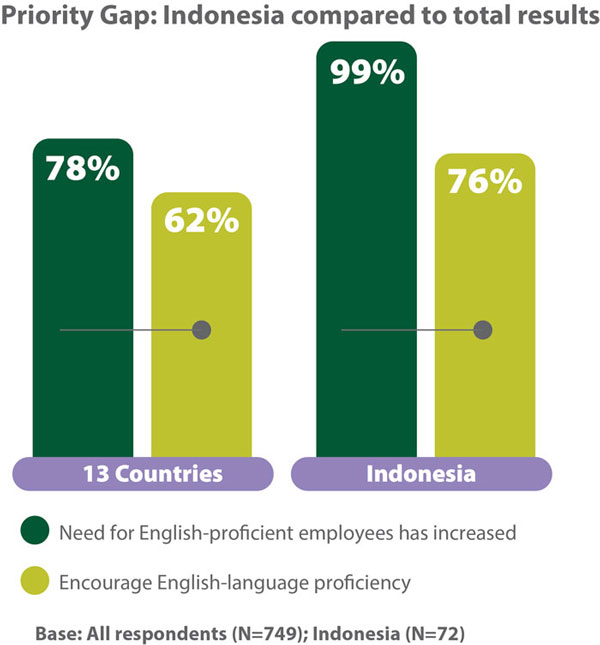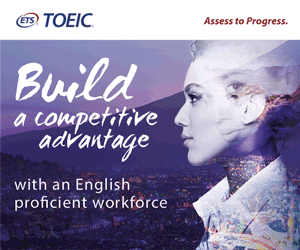Research findings identify a discrepancy between the importance HR professionals place on English-language skills and the level of proficiency being encouraged in the workplace.
International opportunities continue to grow for Indonesian businesses and this makes English-language skills more important than ever.
But while businesses recognize that the need for English-language proficiency is increasing, are they doing enough to make sure they are encouraging this proficiency?
To help understand the importance of English communication to the international workplace, and how businesses are promoting English skills within the workforce, Educational Testing Service (ETS) partnered with Ipsos Public Affairs to carry out a global survey of multinational companies.
This unique research found that there is a gap between the priority that HR leaders place on English-language skills, and the extent to which they are using English to enable global business activities.

While 99 percent of Indonesian HR managers surveyed in the global study say the need for English-language proficiency has increased, only 76 percent indicate that they encourage this proficiency. This priority gap may mean that some companies are not fully prepared to take advantage of globalization. They may be unable to meet business growth challenges, making it more difficult for them to fully integrate with the global business community.
The research shows there is strong recognition among Indonesian HR professionals of the importance of English-language proficiency throughout their organizations.
Indonesia had noticeably higher English-language requirements at all career levels — entry, mid, senior and executive — compared to the global average of all respondents. At the executive level, for example, 96 percent of Indonesian organizations surveyed required English, compared to only 73 percent globally.
In Indonesia, the most frequently cited benefits of having employees with strong English skills are their ability to communicate effectively with clients and company offices overseas, and their ability to better access information and business practices in other countries.
This illustrates how important it is to have a well-designed testing program that assesses listening and speaking, as well as reading and writing. If English-language proficiency evaluation is to be effective, it must be comprehensive and cover the full range of skills.
Organizations should look for programs that assess all four language areas thoroughly to determine both attainment and areas for improvement. This will ensure that any gap in English-language skills proficiency within an organization’s workforce is identified and can be acted upon.
For more than 30 years, the TOEIC® program from ETS has set the standard for assessing English-language skills used in the workplace. The TOEIC tests are used by more than 14,000 organizations worldwide and assess the full range of English-language skills.
TOEIC scores provide an accurate, reliable measurement of English proficiency, and are benchmarked to a globally recognized standard so they are easy to understand and compare.
To find out more about how the TOEIC program helps business build a more effective workforce, visit http://toeicglobal.com/globalstandards.
Copyright © 2017 by Educational Testing Service. All rights reserved. ETS, the ETS logo and TOEIC are registered trademarks of Educational Testing Service (ETS) in the United States and other countries. 37432632



